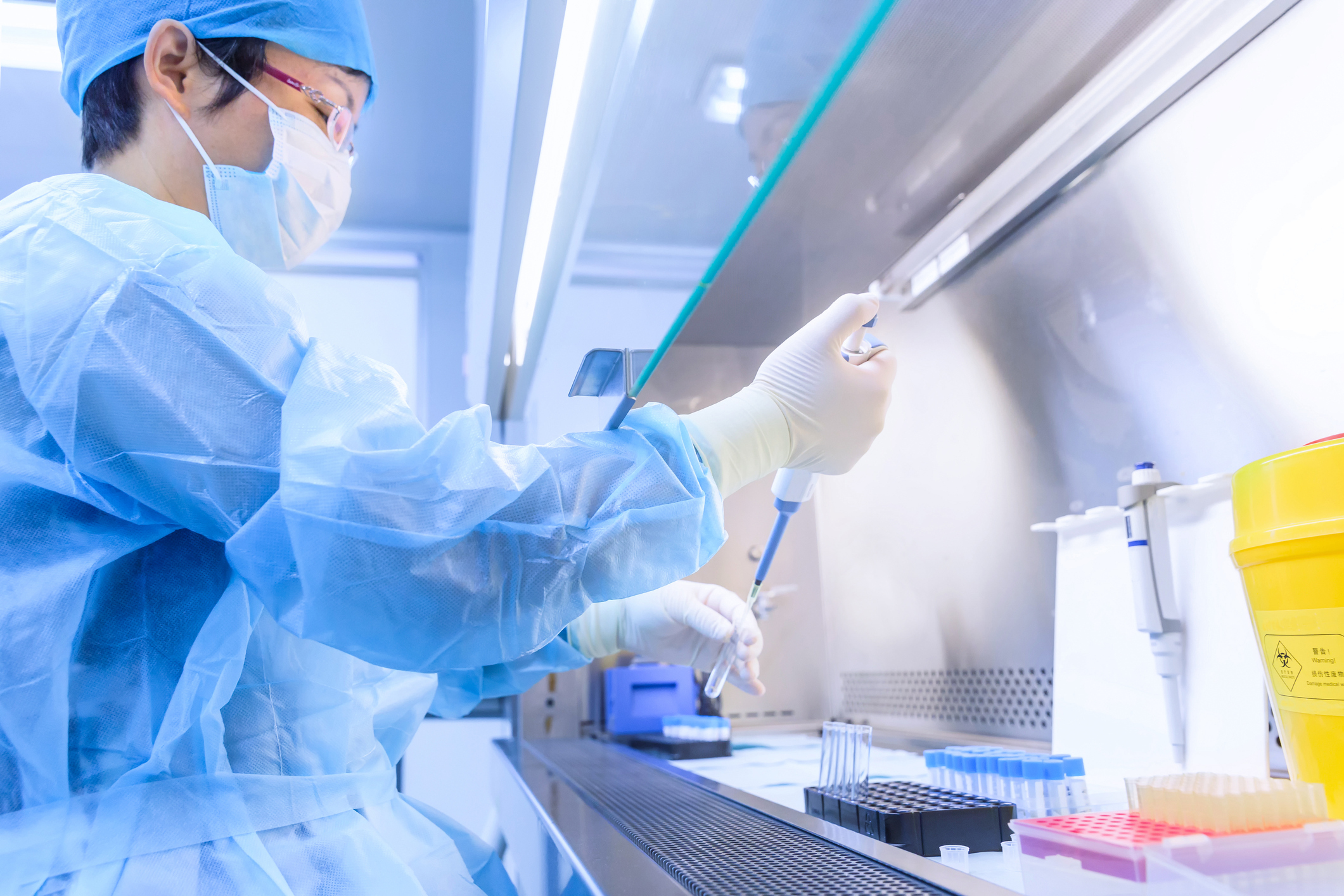
The pharmaceutical industry was in the spotlight during the past few years due to the pandemic as companies rushed to develop therapies and vaccines. Moreover, the industry has seen significant growth in various areas in the last decade, aided by research and development.
According to an IQVIA Institute estimate, total spending and global demand for medicines could reach $1.90 trillion over the next five years. Vaccines will boost the pharmaceutical market to $500 billion by 2027.
“COVID-19 continues to have an impact on pharmaceutical markets globally and is estimated to continue expanding the pharmaceutical market through 2027, largely due to vaccines,” said Murray Aitken, senior vice president and executive director of the IQVIA Institute for Human Data Science.
Moreover, amid rapid digitalization, the global e-pharmacy industry is expected to grow at a 14.2% CAGR until 2028. Investors’ interest in pharma stocks is evident from SPDR S&P Pharmaceuticals ETF’s (XPH) 4% returns over the past nine months.
Given the backdrop, investors could consider buying fundamentally sound pharma stocks Johnson & Johnson (JNJ), AbbVie Inc.(ABBV), and Novartis AG (NVS) in 2023.
Johnson & Johnson (JNJ)
JNJ and its subsidiaries research, develop, manufacture, and sell various products in the healthcare field worldwide. The company operates through three segments: Consumer Health; Pharmaceutical; and Medical Devices.
JNJ’s gross profit margin of 67.94% is 22.3% higher than the 55.55% industry average, while its EBITDA margin of 34.34% is 821.7% higher than the industry average of 3.73%.
JNJ has paid dividends for 60 consecutive years. Over the last three years, JNJ’s dividend payouts have grown at a 6% CAGR. While JNJ’s four-year average dividend yield is 2.60%, its current dividend translates to a 2.84% yield.
JNJ’s consumer health segment revenue came in at $3.77 billion for the fiscal year 2022 fourth quarter, up marginally year-over-year. Moreover, its adjusted net earnings came in at $6.22 billion, representing a 9.5% year-over-year increase. Its EPS increased 10.3% year-over-year to $2.35.
JNJ’s revenue is expected to increase 3.1% year-over-year to $97.85 billion in 2023. Its EPS is expected to grow 3.5% year-over-year to $10.51 in 2023. It surpassed EPS estimates in all four trailing quarters. JNJ’s shares have lost marginally intraday to close the last trading session at $158.24.
JNJ’s POWR Ratings reflect this promising outlook. The stock has an overall rating of A, equating to a Strong Buy in our proprietary rating system. The POWR Ratings assess stocks by 118 different factors, each with its own weighting.
JNJ has an A grade for Stability and Quality and a B for Value. Within the Medical – Pharmaceuticals industry, it is ranked #7 out of 174 stocks. Click here for the additional POWR Ratings for Sentiment, Growth, and Momentum for JNJ.
AbbVie Inc.(ABBV)
Biopharmaceutical company ABBV engages in the research, development, manufacturing, commercialization, and sale of medicines worldwide. The company’s products are segmented into Immunology; Oncology; Anaesthetics; Neuroscience; Eyecare; Women’s Health; and Others.
On January 10, 2023, ABBV and Anima Biotech partnered to discover and develop mRNA biology modulators for three targets across oncology and immunology.
The agreement would provide ABBV access to Anima’s superior technology platform and deep understanding of mRNA biology, strengthening its world-class capabilities in discovering and developing medications.
ABBV’s gross profit margin of 71.47% is 28.7% higher than the 55.55% industry average, while its EBITDA margin of 53.54% is substantially higher than the industry average of 3.73%.
ABBV has paid dividends for nine consecutive years. Over the last three years, ABBV’s dividend payouts have grown at 9.2% CAGR. While ABBV’s four-year average dividend yield is 4.60%, its current dividend translates to a 3.96% yield.
ABBV’s net revenues came in at $15.12 billion for the fourth quarter that ended December 31, 2022, up marginally year-over-year. Its operating earnings increased 8.4% year-over-year to $5.50 billion. In addition, its total operating cost and expenses decreased marginally year-over-year to $9.61 billion.
Street expects ABBV’s revenue to increase marginally year-over-year to $52.63 billion in 2024. Its EPS is expected to be $11.06 in 2024. It surpassed EPS estimates in all four trailing quarters. Over the past six months, the stock has gained 4.9% to close the last trading session at $149.53.
ABBV has an overall B rating, which equates to a Buy in our POWR Ratings system. It has an A grade for Quality and a B for Stability. ABBV is ranked #12 in the same industry. To see the additional POWR Ratings for ABBV (Value, Sentiment, Momentum, and Growth), click here.
Novartis AG (NVS)
Headquartered in Basel, Switzerland, NVS researches, develops, manufactures, and markets healthcare products worldwide. The company operates through two segments, Innovative Medicines, and Sandoz.
On February 6, 2023, Sandoz, a division of NVS and a global leader in off-patent medicines, announced that the US Food and Drug Administration (FDA) had accepted its Biologics License Application (BLA) for planned biosimilar denosumab to treat a variety of disorders, including postmenopausal osteoporosis.
The company is establishing a biosimilar portfolio to provide patient access to high-quality treatments and increase the sustainability of the healthcare system.
NVS’ gross profit margin of 70.90% is 27.6% higher than the 55.55% industry average, while its EBITDA margin of 34.74% is 823.4% higher than the industry average of 3.73%.
NVS has paid dividends for 25 consecutive years. Over the last three years, NVS’ dividend payouts have grown at a 5.5% CAGR. While NVS’ four-year average dividend yield is 3.58%, and its current dividend translates to a 4.04% yield.
NVS’ core operating income came in at $4.03 billion for the fourth quarter that ended December 31, 2022, up 5.5% year-over-year. Its core net income increased 3.7% year-over-year to $3.25 billion. In addition, its core EPS increased 8.6% year-over-year to $1.52.
NVS’ revenue is expected to increase 3.4% year-over-year to $52.26 billion in 2023, while its EPS is expected to increase 7.2% year-over-year to $6.56. It surpassed EPS estimates in all four trailing quarters. The stock has gained 2.9% over three months to close the last trading session at $85.96.
It’s no surprise that NVS has an overall A rating, equating to a Strong Buy in our POWR Ratings system. It has an A grade for Stability and a B for Value, Sentiment, and Quality. It is ranked #3 in the same industry.
Beyond what is stated above, we’ve also rated NVS for Momentum and Growth. Get all NVS ratings here.
Consider This Before Placing Your Next Trade…
We are still in the midst of a bear market.
Yes, some special stocks may go up. But most will tumble as the bear market claws ever lower.
That is why you need to discover the brand new “Stock Trading Plan for 2023” created by 40-year investment veteran Steve Reitmeister. There he explains:
- Why it’s still a bear market
- How low stocks will go
- 9 simple trades to profit on the way down
- Bonus: 2 trades with 100%+ upside when the bull market returns
You owe it to yourself to watch this timely presentation before placing your next trade.
JNJ shares rose $0.29 (+0.18%) in premarket trading Friday. Year-to-date, JNJ has declined -10.42%, versus a 6.76% rise in the benchmark S&P 500 index during the same period.
About the Author: RashmiKumari

Rashmi is passionate about capital markets, wealth management, and financial regulatory issues, which led her to pursue a career as an investment analyst. With a master's degree in commerce, she aspires to make complex financial matters understandable for individual investors and help them make appropriate investment decisions.
The 3 Best Pharma Stocks to Buy for Big Gains in 2023 StockNews.com




